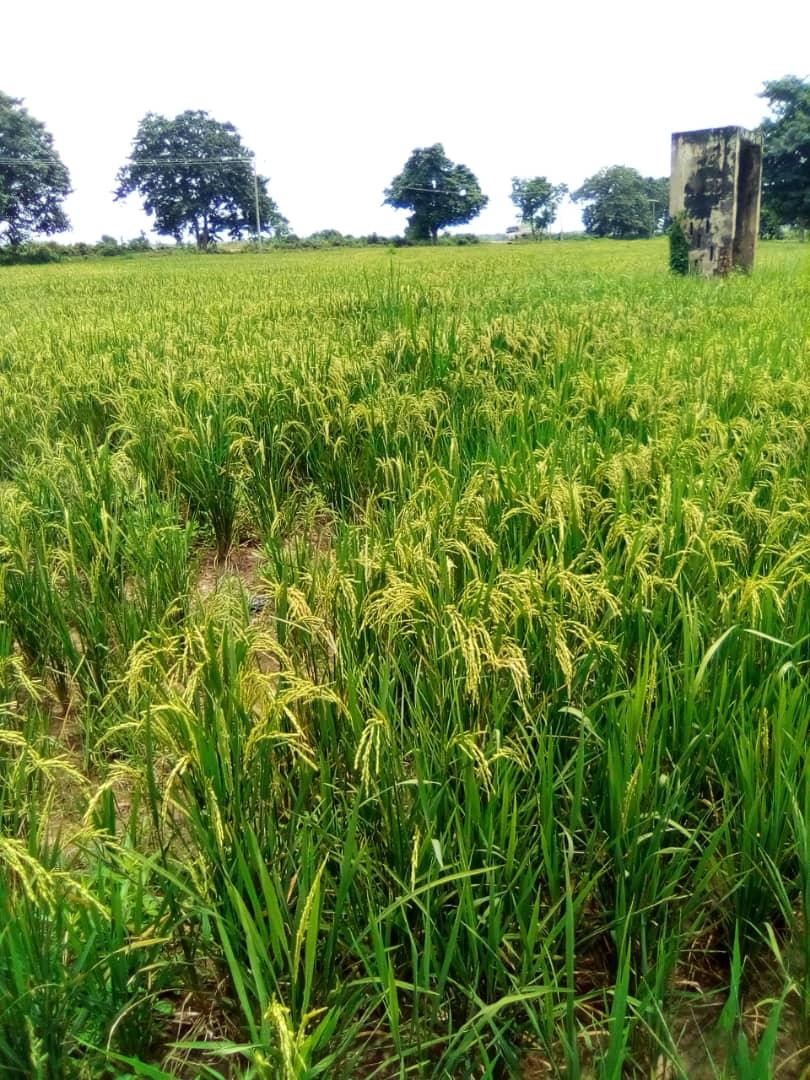The threat to food security in Nigeria as a result of flood will soon be an issue of the past following the release of the FARO 66, a variety of rice that is resistant to flood.
FARO 66, recently released to rice farming communities by the National Cereal Research Institute (NCRI), is a variety that has characteristics and traits that are different from what local farmers are used to.
This variety is taller than other ones known to the farmers. With its height, coupled with effective ecological farming management, it is capable of withstanding the stress of flood to a larger extent.
Acceptability of new varieties among farmers has always been a huge challenge, and the introduction of the FARO 66 is no exception. However, when fully embraced by the farmers, the threat to food security in terms of rice production would be reduced.
During this year’s Field Day, organised by the NCRI station in Birnin Kebbi, the capital of Kebbi State, farmers and other stakeholders were introduced to the new variety after a field trip to the institute’s demonstration farm in the metropolis.
At the demonstration farm, farmers were exposed to FARO 66, which withstood the stress of the recent flood, side by side with the farm of other rice varieties that were washed away by the same flood.
The two farms, which are situated side by side, revealed the flood disaster tolerant capability of the FARO 66 variety, as despite all stress, it grew to maturity. On the farm of the other rice variety, only the remnants of the rice plant could be seen.
Speaking to our correspondent, the head of the NCRI station in Birnin Kebbi, Andrew Shema, said the FARO 66 variety could best resist flood if planted early. He added that with its hard stem and height, if planted early, the variety could grow to a size that when flood sets in, the plant could resist the condition.
He said FARO 66 was released two years ago, but acceptability, as is the case with any new variety, must be gradual, noting that when it becomes widely accepted among farmers, flooding would not be a threat to rice farming any more.
According to him, to sensitise the farmers as research on the improved variety progressed, they were carried along to appreciate the processes and results recorded.
He added that the scientists on the research work were optimistic that if farmers were allowed to appreciate the ability of the plant to withstand flood, acceptance of the new variety among them would not only be fast but also effective.
Shema, who said lack of sufficient funding had been their major constraint in the research work, called on all stakeholders to invest in the initiative for a better tomorrow as research is not only limited to the development of improved varieties but also created jobs, as well as developed the economy of a nation.
He explained that public lectures were also conducted as part of the day one Field Day activities, saying the essence of introducing public lectures in this year’s activities is to bring to the notice of stakeholders that research only comes to fruition with sufficient funding.
He appealed to well-meaning Nigerians and organisations to inject enough into research. The day two was on exhibition and application of technology in farming.
“When we said flood-tolerant, we are not saying it will not be affected by flood completely. What we are saying is that with its characteristics and desirable trends, it would withstand flood stress to some extent.
FARO 66 is tolerant to flood because it is taller than FARO 44 and FARO 52. Its stem is also harder than the other varieties. Ecological management in term of timing for planting is key in resisting flood. Early planting saves a larger proportion of the crop when flood sets in.
The moment rain starts, farmers don’t need to waste time. They should immediately mobilise for planting. This enables the crop to have good vigour and be established well before the flood comes,” he stated.




